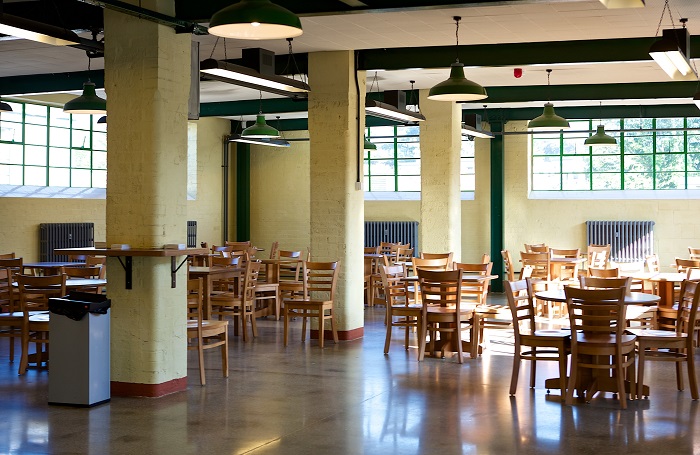The 2018 programme of RIBA Conservation Courses gets underway in April, offering any UK registered architect with a special interest in conservation work a route to entry in the RIBA Conservation Register and on towards accreditation as a Conservation Architect.
The intensive, four-day RIBA Conservation Course is open to architects and other construction professionals and covers the philosophy and practical principles of conservation work through three days of workshops and a practical application day.
Completion of the course, alongside a commitment to adhere to the principles of the ICOMOS Education and Training Guidelines and the RIBA Code of Professional Conduct, can form the basis of an application to become a Conservation Registrant and gain a place on the Conservation Register.
The Conservation Register comprises three levels of conservation expertise: the Conservation Registrant, the Conservation Architect (CA) and the Specialist Conservation Architect (SCA).
‘It is important to appreciate that Registrant is not accreditation, it’s more a professional declaration that you will adhere to good practice and have an appreciation of conservation principles,’ says RIBA accreditation assessor Janie Price. It also declares an understanding of when further specialist guidance is required.

The RIBA Advanced Conservation Course is an important step towards accreditation. Presented as an intensive two-day course, it focusses on the conservation process and technical issues not covered by the introductory course.
After completion architects should be able to make responsible judgements in accordance with the principles of modern conservation and construct a logical project plan based on the RIBA Plan of Work that incorporates conservation processes, principles and guidance.
The accreditation application for a CA can be based on completion of this course and three years’ relevant experience, demonstrated by the submission of four papers, reports or project dossiers. Alternative routes can be based on an additional fourth year of experience or a master’s degree or equivalent in conservation and two years’ relevant experience.
SCA must be able to demonstrate authoritative knowledge of conservation practices and principles and will need a minimum of five years’ relevant experience, or completion of an appropriate training course and four years of experience, or three for those with a master’s degree. In all cases, candidates must submit five papers or dossiers to assessors.
The biggest hurdle facing most architects seeking accreditation is getting the right sort of experience, says Price. Unless architects are working for an established conservation practice, this can involve influencing what projects your practice takes on, making sure you are assigned to them, or perhaps thinking about where you should be working.
Only 50% of candidates are successful in their applications for accreditation at both CA and SCA level. Most unsuccessful candidates either do not have the relevant experience or do not demonstrate it properly, although demonstration shortcomings can be addressed.
‘A common failing is that statements or dossiers do not detail personal experience. A statement should not be a description of practice activity and what the project entailed, it must detail personal actions, decisions, discoveries, instructions given on site and so on. It must be a very personal summary of the contribution made to conservation activity,’ explains Price.
The RIBA does not make exemplars available for the accreditation process because everyone’s experiences are different. Relevant experience can take many forms, from the strategic level of conservation management planning to the small-scale technical level, such as detailing brick repairs.
Last year the RIBA introduced a course on the conservation accreditation process itself and how to assemble and present relevant experience to assessors, whether for CA or SCA accreditation. Price presented the course and expects it to be presented twice a year – potential candidates should watch for future course dates to be announced.
Specialist mentoring can be valuable to architects pursuing conservation accreditation, though it can be difficult to access for those in small practices. Price says the RIBA would like to hear from experienced conservation practitioners who would be prepared to act as conservation mentors.
Eligible architects can apply to become a Conservation Registrant at any time of the year. Applications for accreditation at CA and SCA level are accepted twice yearly, with 31 March and 30 September as deadlines each year.
Thanks to Janie Price, Partner, Kennedy O’Callaghan Architects.
by Neal Morris. This is a Professional Feature edited by the RIBA Practice team. Send us your feedback and ideas
RIBA Core Curriculum Topic: Building conservation and heritage.
As part of the flexible RIBA CPD programme, Professional Features count as microlearning. See further information on the updated RIBA CPD Core Curriculum and on fulfilling your CPD requirements as an RIBA Chartered Member.
Posted on 29 March 2018.









